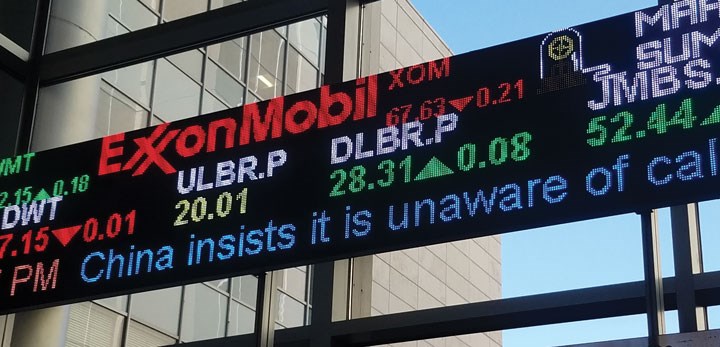ExxonMobil cleared of misleading investors about cost of climate crisis
Meanwhile, similar lawsuit continues in Massachusetts

EXXONMOBIL has been acquitted in a lawsuit brought against it by the state of New York, which had claimed that the company had deceived investors over the business costs of policies relating to the climate crisis.
The financial fraud lawsuit was filed on 24 October 2018 by then New York Attorney General Barbara Underwood, following years of investigation. The trial took place between 22 October and 7 November 2019, where current Attorney General Letitia James attempted to show that ExxonMobil had kept two sets of books for estimating the cost of complying with policies on the climate crisis. On 10 December, Barry Ostrager, New York Supreme Court Judge, ruled that the state didn’t show that ExxonMobil broke state fraud laws in its description to stakeholders.
“The Office of the Attorney General failed to prove, by a preponderance of the evidence, that ExxonMobil made any material misstatements or omissions about its practices and procedures that misled any reasonable investor,” Ostrager wrote in his decision.
Different ways of calculating emissions costs
The Attorney General attempted to use a New York state anti-fraud law, known as the Martin Act, to show that ExxonMobil committed fraud in how it calculated the impact of the climate crisis on business. Under the Act, James only needed to prove that investors had been deceived, and did not need to prove intent by the company. James claimed that ExxonMobil had used two different accounting measures, one public and one private, to assess business risks. The complaint stated that ExxonMobil privately used much lower figures which allowed it to make carbon-heavy investments. It estimated that damages to shareholders were between US$476m and US$1.6bn. However, no testimony was given by an investor claiming to have been misled. During the closing arguments, the Attorney General’s office dropped two of the four fraud counts.
ExxonMobil explained its use of the two different costs, in a statement made in October 2019. “In the absence of a uniform, globally-accepted cost of carbon, ExxonMobil uses two distinct metrics to account for the impact of current and potential climate-related regulations. The first is a ‘proxy cost’ which is intended to reflect the impact of all climate polices that could reduce demand for oil and natural gas globally. The other, a greenhouse gas cost or ‘GHG cost’, reflects actual costs that might be imposed directly on the emissions of oil and gas projects as a result of specific laws in a jurisdiction, for example. ExxonMobil applies proxy costs and GHG costs precisely as disclosed and takes both into account to help make sound business decisions and meet its fiduciary responsibilities to shareholders.”
Ostrager ruled that ExxonMobil had been transparent about its two cost calculation methods and therefore didn’t mislead investors.
Recent Editions
Catch up on the latest news, views and jobs from The Chemical Engineer. Below are the four latest issues. View a wider selection of the archive from within the Magazine section of this site.




